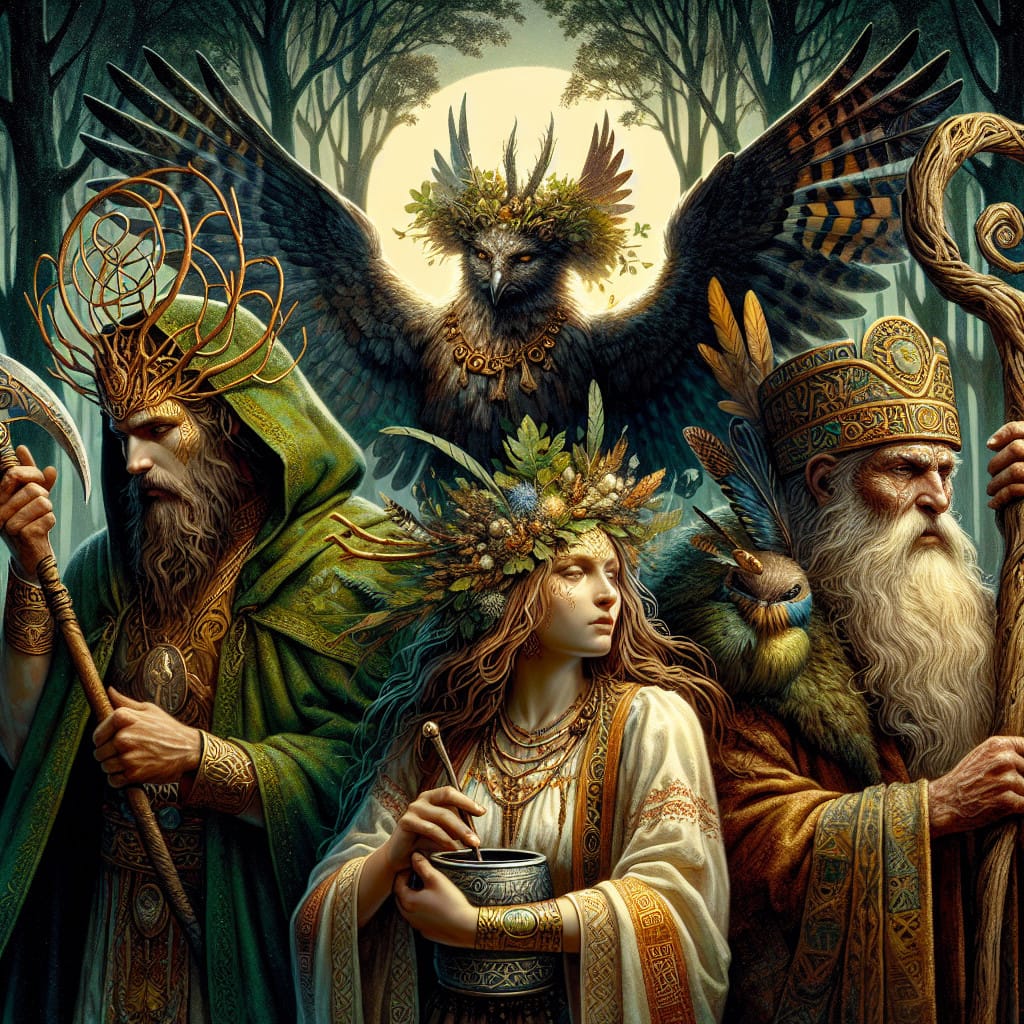The ancient gods of Ukraine have long been a source of fascination and mystery. From the bright and heroic gods of the Slavs, to the mysterious gods of the Scythians and the mighty gods of the Trypillians, these gods have long been an integral part of Ukrainian history and culture. In this article, we will explore the pantheon of Ukrainian pagan gods, their stories, and how they are still relevant in the modern day.

Ukraine is a country with a rich and varied history that has been shaped by a variety of different religions, cultures, and traditions. One of the most fascinating elements of Ukrainian culture is its ancient pagan gods and goddesses. Ukrainian pagan gods are believed to have been around since the earliest days of the country, and they still have a powerful presence in modern Ukrainian culture.
Who Are the Ukrainian Pagan Gods and Goddesses?
The Ukrainian pagan gods and goddesses are an eclectic group of deities from different mythologies, including Native American, Slavic, and ancient Greek and Roman gods. They were worshiped by the ancient Ukrainians and were believed to have special powers over specific areas of life.
One of the most prominent gods in Ukrainian mythology is Perun, the god of lightning and thunder. He is believed to be the father of all gods and the creator of the universe. Other gods in the pantheon include Dazhbog, the sun god; Mokosh, the goddess of fertility; and Yarylo, the god of the harvest.
How Are the Ukrainian Pagan Gods Worshiped?
The ancient Ukrainians believed in honoring their gods through rituals and offerings. This typically included making sacrifices, such as animals and food, to the gods in order to receive their favor.
Worshipers also made offerings of coins, jewelry, and other items to the gods in an effort to gain their favor or protection. In addition, they prayed to the gods and goddesses and made offerings to ensure that their crops would be plentiful, their families healthy, and their lives prosperous.
What Is the Role of the Ukrainian Pagan Gods in Modern Life?
Though the worship of the Ukrainian pagan gods is no longer prevalent, the gods are still revered in modern Ukraine. The gods are still honored in various festivals and celebrations, such as Kupala, which is a summer solstice celebration.
In addition, the gods are still seen as important figures in Ukrainian folklore and literature. They are often featured in stories and songs and are seen as symbols of strength and courage.
Conclusion
The Ukrainian pagan gods and goddesses have played an important role in the history and culture of Ukraine. Though the worship of these gods is no longer as prevalent, they are still honored and respected in modern Ukrainian culture. Through festivals, stories, and other forms of celebration, the gods and goddesses of Ukrainian mythology remain an integral part of Ukrainian culture.
The Ukrainian pagan gods are an integral part of the country’s history, culture, and beliefs. They have been worshipped for centuries by the people of this region and continue to be celebrated today. While some of the gods have been forgotten, others still remain an important part of the Ukrainian pantheon. The belief in these gods has provided Ukrainians with a sense of identity, belonging, and connection to the land. It is important to remember and honor these gods as they continue to be a part of the Ukrainian culture and identity.





